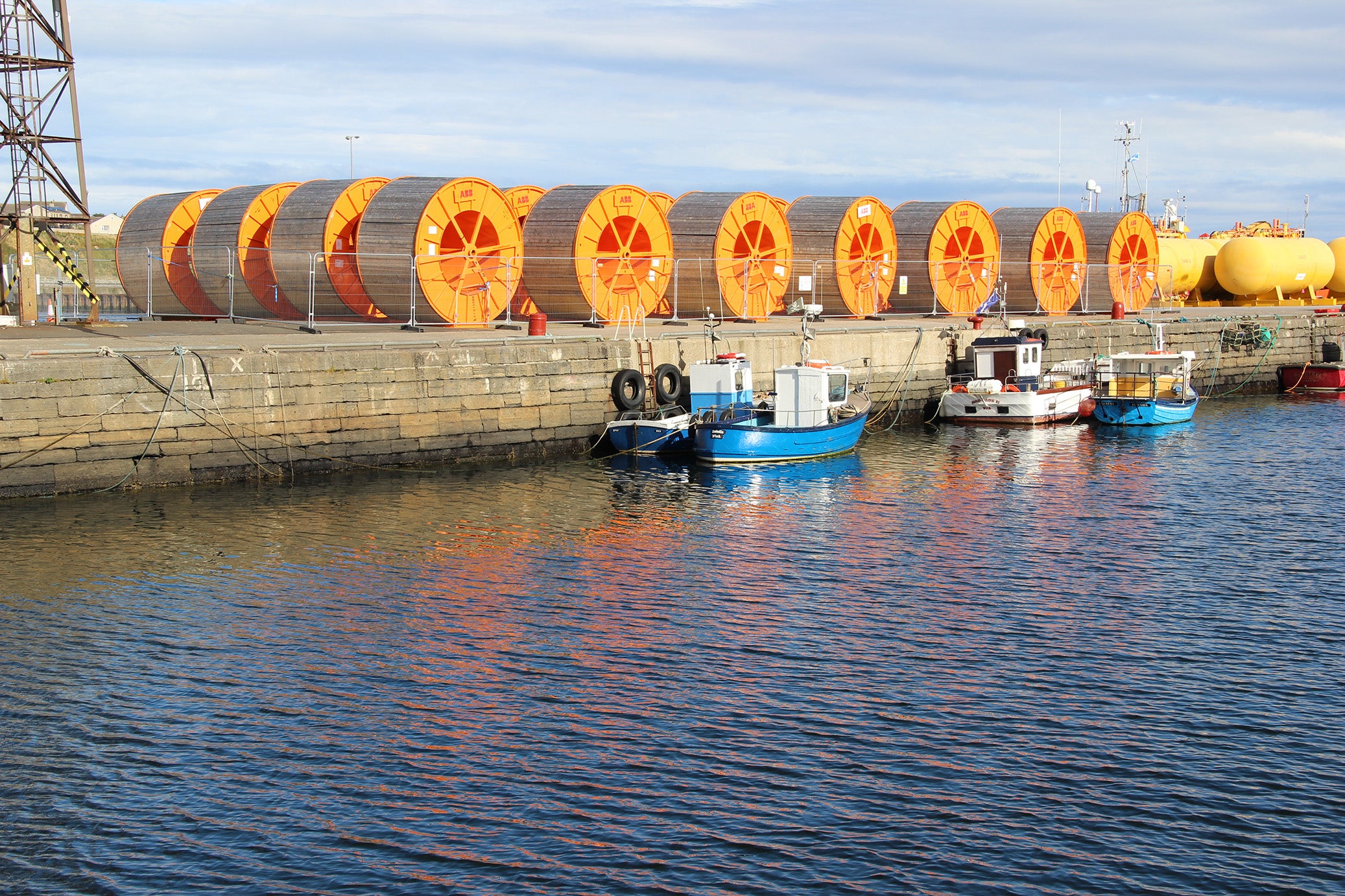National Grid and Scottish Power to pay £158 million for subsea project delays
The energy regulator said the penalty will be passed on to households to help lower electricity bills.

National Grid and Scottish Power Transmission have agreed to pay a £158 million penalty package that will lower household bills after a two-year delay to a major, subsea, power cable project, the energy regulator has announced.
Ofgem said an investigation found that National Grid Electricity Transmission and the Scottish Power business were ultimately responsible for lengthy delays to the Western Link project, which was finally completed in June 2019.
The delays made it hard for renewable energy generators in Scotland to export green electricity to England and Wales from windfarms and led to higher costs to households as alternative sources of energy were used to plug the gap, according to Ofgem.
Ofgem said £15 million of the fine will be paid into its redress fund for vulnerable energy customers, which is run by the Energy Saving Trust.
To deliver the UK’s climate change ambitions, more of our electricity will come from renewable generation
The remainder will go towards reducing system charges, which will be passed on to consumers through lower electricity bills.
Ofgem added that consumers have already benefited by a further £100 million returned by the companies and used to lower system charges after they delivered the project under-budget.
The £1.2 billion Government-commissioned Western Link project provides a 262-mile long link between Scotland and Wales – of which 239 miles is under the sea – with capacity for 2,250 megawatts of power.
Electrical links such as this are seen as being key to helping the UK reach its net-zero emissions targets.
Ofgem said that delays to the project were found to be down to supply chain issues with the manufacturing processes, installing the cables and commissioning tests.
Cathryn Scott, Ofgem’s director of enforcement and emerging issues, said: “To deliver the UK’s climate change ambitions, more of our electricity will come from renewable generation.
“This is already happening, with offshore wind and other projects in development.
“Innovative projects such as the Western Link are vital in moving clean energy from where it’s produced to where it’s needed.
“However, they must be delivered on time and to the standards agreed.
“Where they are not, as the energy regulator, we will hold the licensees accountable.”
A spokesperson for the Western Link joint venture between National Grid Electricity Transmission and SP Transmission, said: “From the outset the joint venture worked hard to protect consumers against delay and deliver the most efficient and economic approach, with the new technology utilised meaning fewer cables were required, minimising costs and disruption to local communities.
“Despite these efforts, which have been recognised by Ofgem in their investigation – and the fact that the link was in operation and providing benefit for significant parts of the period identified – the joint venture recognises it is ultimately accountable for the delay and has therefore agreed to the redress package.”